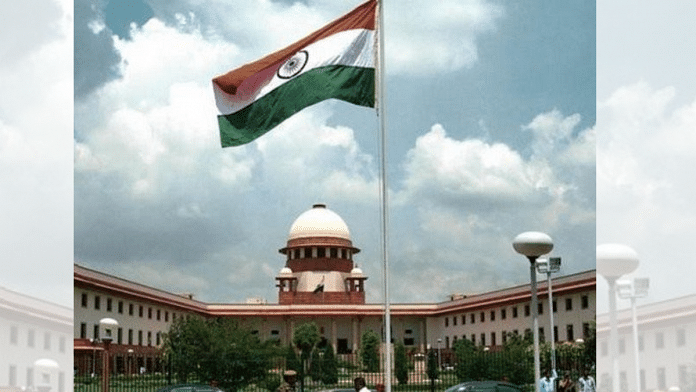New Delhi: Laws against “forceful conversions” are necessary to “protect cherished rights of vulnerable sections of the society, including women and economically social backward classes”, the Centre told the Supreme Court on Monday, taking a stand in favour of recently-promulgated anti-conversion laws by various BJP-ruled states.
The Centre further said it would “in all seriousness” take “appropriate steps” to check the “menace” of forced conversions.
The Centre spelt out its stand in an affidavit given in response to a public interest litigation filed by advocate Ashwini Upadhyay, who wants stringent steps to control fraudulent religious conversion and those by intimidation, threatening, deceiving, luring through gifts and monetary benefits.
Upadhyay also asked for a direction to the Law Commission of India to prepare a report as well as a Bill to control religious conversion by the above-mentioned means.
On the petition’s previous hearing, the bench of Justices M.R. Shah and Hima Kohli had termed “forceful conversion” a very serious issue. The act not only affects the union of India, but also the freedom of religion and the conscience of individuals, the court had observed, asking the Centre to make its stand clear on the issue.
Quoting Article 25 of the Constitution – the provision that allows an Indian citizen to propagate one’s religion – and a Constitution Bench judgement of 1977, the Centre said the word “propagate” does not “envisage the right to convert a person, rather is in the nature of positive right to spread one’s religion by exposition of its tenets”.
The SC verdict came on petitions challenging the constitutional validity of anti-conversion laws of Madhya Pradesh and Odisha. The two state legislations were challenged on the ground that they violate the right to propagate one’s religion under Article 25.
Fraudulent or induced conversion impinges upon the right to freedom of conscience of an individual, apart from “hampering public order”, the Centre said.
Since the state was responsible to maintain public law and order, it was well within its power to regulate or restrict the menace, described by the Centre as “organised, sophisticated large scale illegal conversion”, the government added. And, the same, it said, was upheld by the top court as well.
The states that have over the years passed enactments to curb the practices highlighted in Upadhyay’s petition are Odisha, Madhya Pradesh, Gujarat, Chhattisgarh, Jharkhand, Uttarakhand, Uttar Pradesh, Karnataka and Haryana.
Also read: ‘If you want us to appoint judges, we will,’ SC objects to law minister’s remarks on collegium



